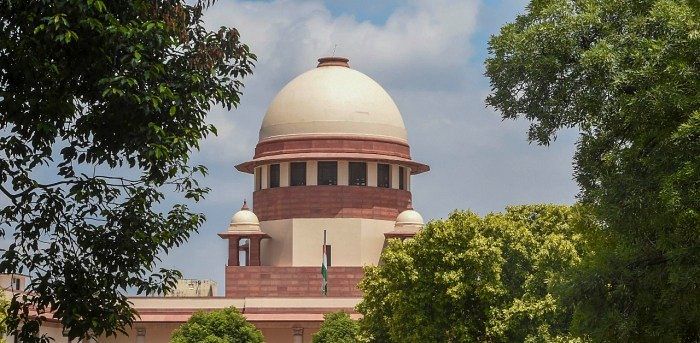
The Supreme Court on Monday said it is "shocking, distressing, terrible and amazing state of affairs" that Section 66A of the IT Act was still being used against citizens for offensive online posts, though it was struck down in the Shreya Singhal case in 2015.
A three-judge bench presided over by Justice R F Nariman, issued a notice to the Union government on an application by PUCL, highlighting the abuse of the provision.
Senior advocate Sanjay Parikh appeared for the NGO, which stated that as many as 745 cases were still pending and active before the districts courts in 11 states, wherein the accused persons were being prosecuted for offences under Section 66A of the Information Technology Act.
The plea pointed out 1,307 new cases were registered after the law was declared unconstitutional. Maharashtra registered the highest at 381 cases followed by Jharkhand 291 and Uttar Pradesh 245 cases. Karnataka registered 14 such cases after 2015 and three were pending over there.
"There has to be some kind of method to ensure compliance of the apex court's direction. People are suffering," he said.
Attorney General K K Venugopal said the Bare Act should, after Section 66A, mention within a bracket that it has been struck down and declared unconstitutional, instead of mentioning so in the footnote. A police officer must be going by the provision, ignoring the footnote, he said.
The court, however, asked him to file a response in the matter.
"It is amazing, what is going on is quite terrible, distressing and shocking," the bench said.
Justice Nariman also referred to his "hard-hitting" Sabrimala dissent judgement and referred to Article 144 of the Constitution, which stated that all authorities had to act in aid of the Supreme Court.
The bench, also comprising Justices K M Joseph and B R Gavai, decided to consider the matter two weeks after.
The top court had on March 24, 2015, held that “Section 66A is struck down in its entirety being violative of Article 19(1)(a) (freedom of speech) and not saved under Article 19(2) (reasonable restrictions).” Section 66A of the Information Technology Act, 2000 made posting "offensive" comments online a crime punishable by a jail term of three years.
